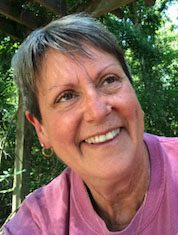 The cord grass is turning green. The seasonal shift was always part of my conversations with my mom as we crossed over the Woods Memorial and McTeer bridges. Was.
The cord grass is turning green. The seasonal shift was always part of my conversations with my mom as we crossed over the Woods Memorial and McTeer bridges. Was.
Irene passed away on February 10. It was quiet but her death followed hours of labored breathing, days of struggle with simple acts, months and years of battles waged against cancer and diabetes. Irene was always a fighter. She is the strongest woman I have ever met.
Years ago, in passing, someone told me that taking care of a parent was like raising a child but without the hope. Tending to my mom is as close as I will ever come to raising a child. Before Irene passed, in a quiet moment when it was just the two of us, she said, “You are going to be alright.” She was raising me up until her last days. I was never the mother. I was always the child.
For me, mothers are closest to mimicking God as creators, bringing life into the world, our own Genesis as sons and daughters. “As long as you are alive, your mother will always be here,” the funeral director said when we met and again when we parted company in February. He was referring to how much I look like my mother and it gave me great pause to hear those words and know someone sees Irene in me.
Irene moved to South Carolina in 2005 from Pittsburgh Pennsylvania, her home for seventy-three years, and she did not take to it right away. The southern drawl was like a foreign language to her. Anoles, the petite native lizards whose green to brown color change makes them the local chameleons, were “little monsters” to Irene. She was bothered by our “February autumn” when live oaks drop leaves, seeds and pollen, and she was allergic to shrimp, limiting the dining options for my husband and me. But over time, Beaufort became Irene’s home and she settled into the landscape and culture in the same way she relaxed in the backyard swing. She adapted and let go, continuing to teach by example.
My mother’s greatest living lesson to me was sacrificing for her family. After breakfast, she would sit at the dining room table in her pajamas paying bills, saving bits of my dad’s salary to educate my brother, sister and me. After a debilitating stroke paralyzed the right side of my father’s body and stunted his speech, my mother spent five years caring for him, setting out his clothes, opening doors, preparing his meals, and helping him to bed. She kept moving forward, straight ahead, accepting what had to be done to the point of forgetting herself, her health, her well-being, finally leading her to Lady’s Island, decimated by undiagnosed Type I diabetes.
When she moved into our home, she brought Cokie, her longtime companion, a devoted Bichon Frisé. Her heart broke when Cokie passed and as I continue to sift through the cards and notes she saved, I found one I wrote hours after we left the vet. “I am so sorry Mom. I know you loved Cokie. I loved Cokie too. Here is my pillow pet for you to sleep with. I love you more.” I shrunk from offering any meaningful help then. I dealt with her pain by turning away because I was in shock as the sole witness to her pain. Sometimes distance was the only place to find strength.
Over twelve years, Irene’s litany of ailments connected us to a roster of doctors: Gambla, Statler, Burrus, Tober, Loon, Warner, Vyge, Stewart, Graybill, Newberry, McNab, Briggs, Akers, Jablon, Billig, Daniel, Crisologo, Calcutt, Manos, Leddy and Krueger. Twenty doctors over twelve years treating diabetes, carcinoid cancer, breast cancer, bone cancer, arterial plaque, gastroparesis, neuropathy, macular degeneration, cataracts, asthma, diverticulitis, female ailments, the common cold and pain. In her last eight months, she would deal with persistent pain on the high side of the arbitrary 1-10 scale. My husband, my sister and brother, their spouses, Irene’s grandkids, friends, caregivers – we took the stinging journey with her. Our dogs, Trooper and Toby, were sentinels through restless nights. I learned to sit with her suffering.
I went back to Pittsburgh less than one month after we buried my mother. Samuel Barber’s Adagio for Strings played in the Pittsburgh terminal when I deplaned. Listen to it. I drove to the hotel just after midnight following the Worm Moon, a full moon starting to pass into its last quarter, partnering with Jupiter and a star called Spica. An icy rainbow encased the moon. I wore her down jacket. In the morning, I visited her grave at Queen of Heaven Cemetery. It was 23F and the temperature was dropping. I hung a wind chime in the tree beside her grave. I picked up snow blanketing the dirt and packed it around a small heart shaped balloon I set in the bronze vase grave marker. It said “Hugs and Kisses.” As I moved around the plot, my booted foot sank not once, but twice, in two of the four corners of the earthen rectangle. The grave was settling. She’d only been gone a little more than a month. I was cold. I heard her. “Go live your life.” It stopped me. “Go live your life” but I barely had the courage to drive away.
It is strange to wake up in the world without parents. It happens every day – by accident, natural disaster, sickness, war, or abandonment. Having been blessed by my mother’s presence for fifty-nine years, I know I am lucky. An orphan identity does not seem to apply to me because the presence of my parents is real and vital to my being. But in fact, it is true by its definition: a child whose parents are dead. Yes, my parents are dead but I have no doubt they want me to live in a way that is good and happy and vibrant.
I never knew that throwing away Kleenex stuffed inside my mom’s coat pockets could be so hard. I did not know finding hand folded Freedent gum wrappers sprinkled in corners of the car or Tootsie Roll Midgees stored like acorns in drawers would make me grin. I do know my mother wanted me to write and for the past two years my life has been consumed with work and caregiving and the crevices between those responsibilities were filled with my husband and the dogs. It is time to honor my mother and myself. It is a time of renewal and growth beside the grief. It is time to write. The cord grass is turning green.





